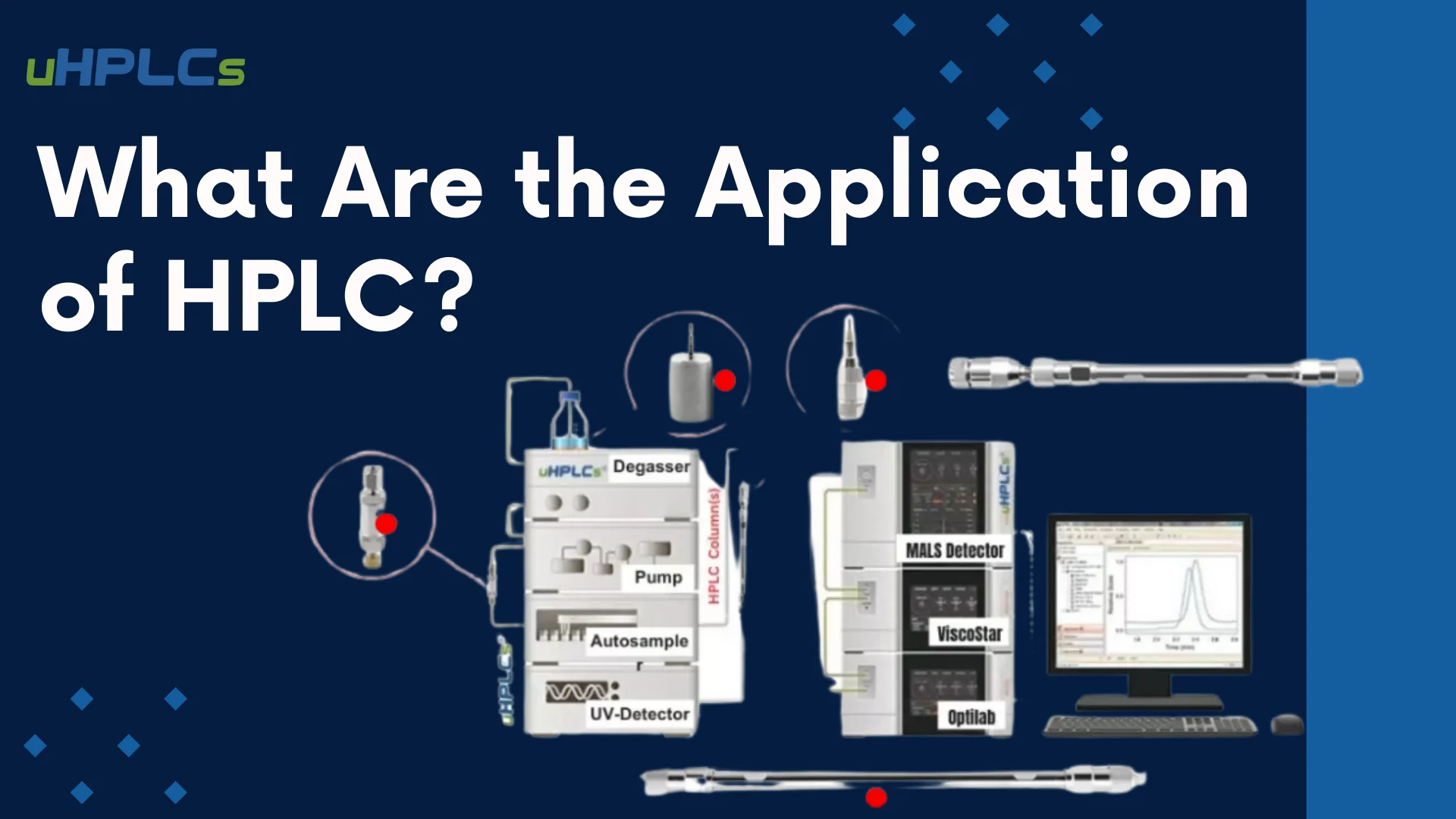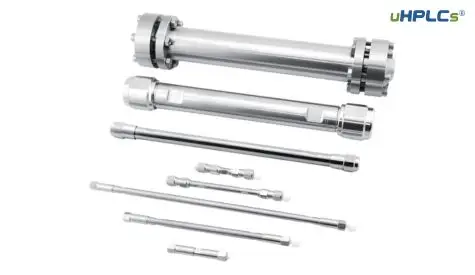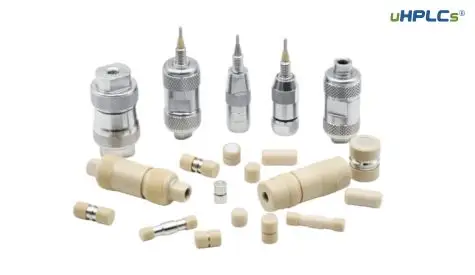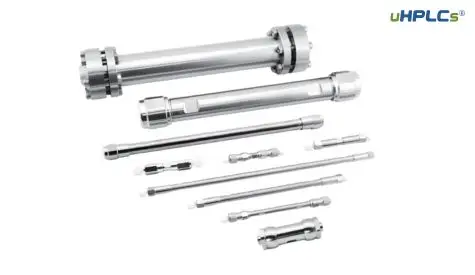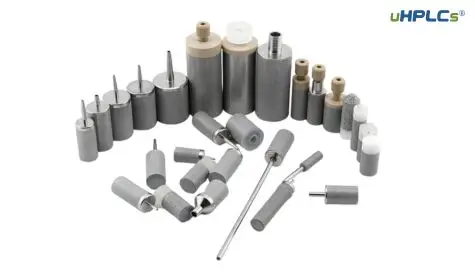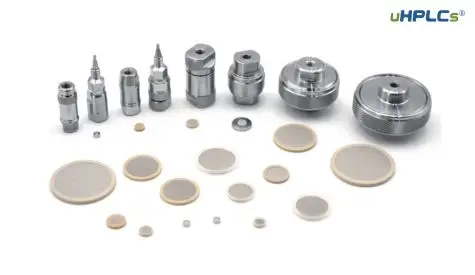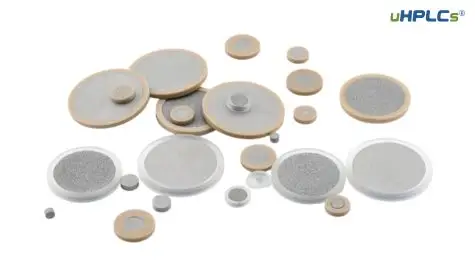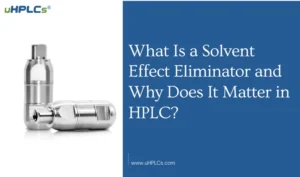High-Performance Liquid Chromatography (HPLC) has become an indispensable analytical technique in laboratories worldwide. Known for its precision, reproducibility, and ability to handle complex mixtures, HPLC plays a crucial role in ensuring the quality, safety, and consistency of products across a wide range of industries. But what exactly is HPLC used for, and why is it so widely adopted?
Let’s explore the major application areas where HPLC makes a difference.
1. Pharmaceutical Industry
In the pharmaceutical sector, HPLC is indispensable. It is used throughout drug development and production processes:
-
Purity and Quality Control: HPLC helps verify the identity, purity, and concentration of active pharmaceutical ingredients (APIs) in both raw materials and finished products.
-
Impurity Detection: It identifies trace levels of impurities and degradation products.
-
Bioavailability and Pharmacokinetics: Researchers use HPLC to analyze how drugs behave in the human body—how they are absorbed, distributed, metabolized, and excreted.
-
Stability Testing: It assesses the shelf life of drugs under various conditions.
2. Food and Beverage Industry
Ensuring food safety and nutrition requires precise analytical techniques, and HPLC fits the bill:
-
Nutrient Analysis: HPLC is used to quantify vitamins, amino acids, and preservatives in food and beverages.
-
Additive Monitoring: It checks for artificial sweeteners, colorants, and flavor enhancers.
-
Pesticide Residue Testing: Food safety authorities rely on HPLC to detect even trace levels of harmful pesticide residues.
3. Chemical and Petrochemical Industry
In industrial chemistry, product consistency is key:
-
Raw Material Analysis: HPLC helps confirm the composition and quality of raw chemicals.
-
Final Product Testing: Manufacturers use it to ensure that final products meet specification.
-
Process Optimization: HPLC data supports process control by monitoring chemical reactions and intermediate products.
4. Biotechnology and Life Sciences
HPLC is a backbone technology in biological and biochemical research:
-
Protein and Peptide Purification: It separates and analyzes complex biomolecules with high precision.
-
DNA and RNA Analysis: Nucleic acid purity and concentration can be determined using HPLC.
-
Metabolomics: Researchers use it to identify and quantify small molecules in biological systems.
5. Environmental Analysis
HPLC plays a role in protecting public health and the planet:
-
Water Quality Testing: HPLC detects contaminants such as pesticides, pharmaceuticals, and endocrine disruptors in drinking and surface water.
-
Soil and Air Monitoring: It helps measure pollutants and degradation products in soil and atmospheric samples.
6. Forensic and Clinical Applications
HPLC is widely used in forensics and diagnostics:
-
Toxicological Screening: It identifies drugs, poisons, and other substances in blood or urine samples.
-
Clinical Diagnostics: HPLC is used to monitor therapeutic drug levels and detect metabolic disorders.
-
DNA Fingerprinting: Certain forensic labs employ HPLC to support genetic analysis.
7. Cosmetics and Personal Care
To ensure safety and effectiveness, HPLC is used in:
-
Product Testing: It confirms the presence and concentration of active ingredients.
-
Preservative Stability: HPLC helps track degradation over time.
-
Regulatory Compliance: It ensures cosmetic products meet safety standards set by authorities.
Why Is HPLC So Widely Used?
HPLC (High-Performance Liquid Chromatography) has become a staple in analytical labs worldwide due to the following key advantages:
-High Accuracy: Capable of detecting and quantifying compounds at very low concentrations, often in the ppm or ppb range.
-Versatility: Suitable for a wide variety of sample types—liquids, solids, organics, inorganics, proteins, and more.
-Wide Application Range: Used across multiple industries, including pharmaceuticals, food safety, environmental monitoring, cosmetics, and chemical manufacturing.
-Reliable and Reproducible Results: Ensures consistent data, which is critical for research, quality control, and regulatory compliance.
-Compatibility with Advanced Detection Systems: Works well with UV, fluorescence, MS, and other detection technologies, offering flexibility for different analytical needs.
Looking for HPLC Consumables That Perform as Hard as You Do?
At uHPLCs, we offer:
* High-quality HPLC columns and accessories
* Customized solutions for special applications
* Consistent, reliable performance batch after batch
* Fast delivery and technical support from real experts
* Products trusted by labs across industries
* Reach out today at sales@uHPLCs.com to find the right HPLC consumables for your workflow—and see the difference quality makes.
Conclusion
From ensuring the safety of our food and drugs to supporting cutting-edge research and environmental monitoring, HPLC is a cornerstone of modern analytical science. Its unmatched precision and adaptability make it an essential tool for industries committed to quality, safety, and innovation.

